VW ID.4 VS Maxus eTERRON 9 – Specs, Efficiency & Price Comparison
Which model is the better choice – the VW ID.4 or the Maxus eTERRON 9? We compare performance (340 HP vs 442 HP), boot capacity (543 L vs ), efficiency (15.80 kWh vs 26.70 kWh), and of course, the price (34600 £ vs 64200 £).
Find out now which car fits your needs better!
The VW ID.4 ({ body-type_1}) is powered by a Electric engine and comes with a Automatic transmission. In comparison, the Maxus eTERRON 9 (Pickup) features a Electric engine and a Automatic gearbox.
When it comes to boot capacity, the VW ID.4 offers 543 L, while the Maxus eTERRON 9 provides – depending on what matters most to you. If you’re looking for more power, you’ll need to decide whether the 340 HP of the VW ID.4 or the 442 HP of the Maxus eTERRON 9 suits your needs better.
There are also differences in efficiency: 15.80 kWh vs 26.70 kWh. In terms of price, the VW ID.4 starts at 34600 £, while the Maxus eTERRON 9 is available from 64200 £.
Compare all the key specs now and find out which model fits your lifestyle best!
VW ID.4
The VW ID.4 represents Volkswagen's commitment to the electric vehicle market, combining contemporary design with sustainability. Its spacious interior and intuitive technology make it an attractive choice for those seeking comfort and innovation in an eco-friendly package. With a focus on electric performance and practicality, this car is set to be a popular option among environmentally-conscious drivers.
details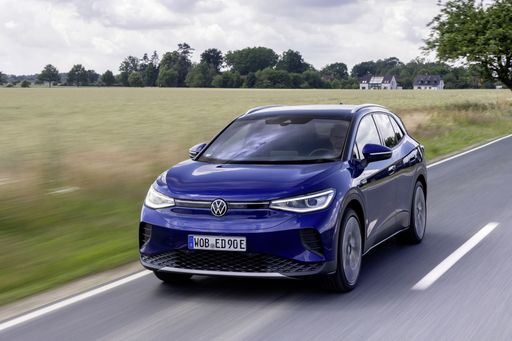 @ Volkswagen
@ Volkswagen
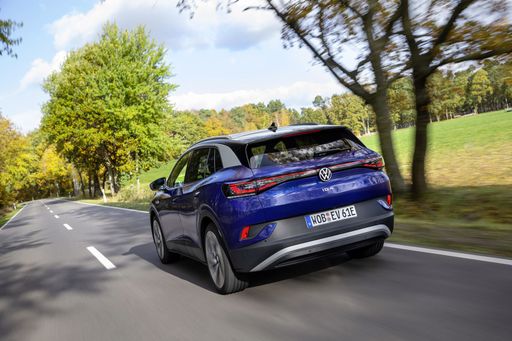 @ Volkswagen
@ Volkswagen
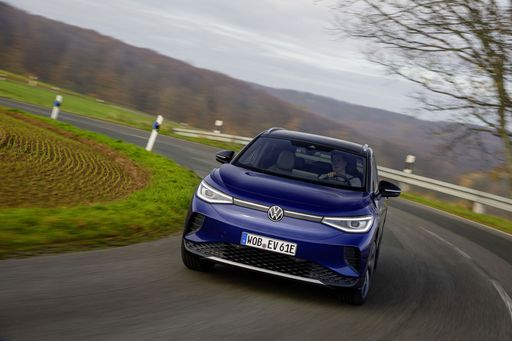 @ Volkswagen
@ Volkswagen
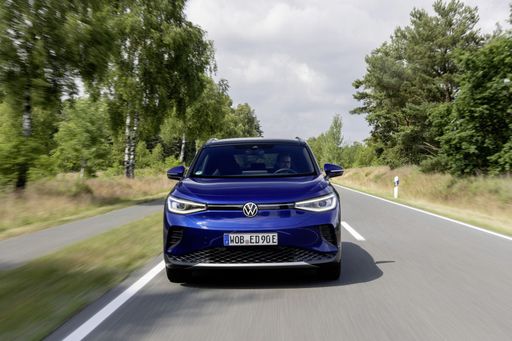 @ Volkswagen
@ Volkswagen
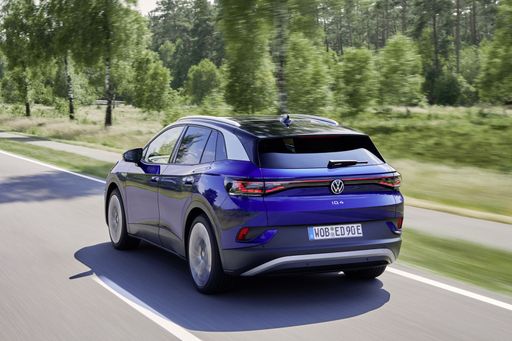 @ Volkswagen
@ Volkswagen
 @ Volkswagen
@ Volkswagen
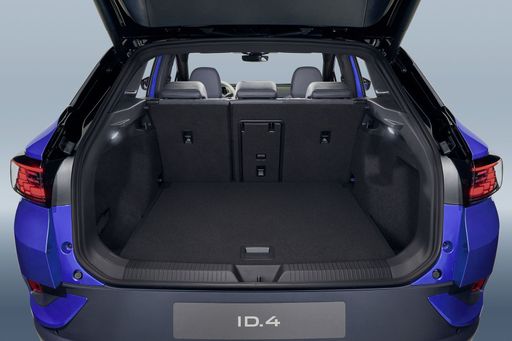 @ Volkswagen
@ Volkswagen
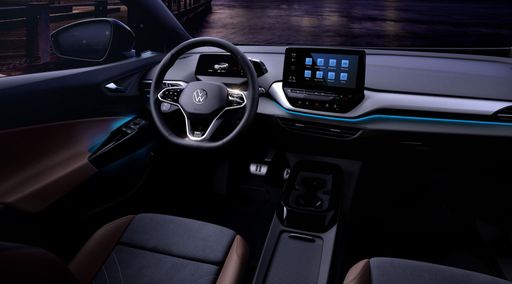 @ Volkswagen
@ Volkswagen
Maxus eTERRON 9
The eTERRON 9 stands out with its striking design and innovative features, making it a compelling choice for eco-conscious drivers. Its spacious interior and advanced technology provide a seamless driving experience that prioritizes both comfort and connectivity. With impressive efficiency and an array of smart capabilities, the eTERRON 9 is redefining what modern electric vehicles can offer.
details

|
|
|
|
|
Costs and Consumption |
|
|---|---|
|
Price
34600 - 46700 £
|
Price
64200 - 66800 £
|
|
Consumption L/100km
-
|
Consumption L/100km
-
|
|
Consumption kWh/100km
15.8 - 16.8 kWh
|
Consumption kWh/100km
26.70 kWh
|
|
Electric Range
357 - 572 km
|
Electric Range
430 km
|
|
Battery Capacity
52 - 77 kWh
|
Battery Capacity
-
|
|
co2
0 g/km
|
co2
0 g/km
|
|
Fuel tank capacity
-
|
Fuel tank capacity
-
|
Dimensions and Body |
|
|---|---|
|
Body Type
SUV
|
Body Type
Pickup
|
|
Seats
5
|
Seats
5
|
|
Doors
5
|
Doors
4
|
|
Curb weight
1979 - 2261 kg
|
Curb weight
2925 - 2955 kg
|
|
Trunk capacity
543 L
|
Trunk capacity
-
|
|
Length
4582 - 4584 mm
|
Length
5500 mm
|
|
Width
1852 mm
|
Width
1997 mm
|
|
Height
1619 - 1634 mm
|
Height
1860 mm
|
|
Payload
509 - 541 kg
|
Payload
545 - 575 kg
|
Engine and Performance |
|
|---|---|
|
Engine Type
Electric
|
Engine Type
Electric
|
|
Transmission
Automatic
|
Transmission
Automatic
|
|
Transmission Detail
Reduction Gearbox
|
Transmission Detail
-
|
|
Drive Type
Rear-Wheel Drive, All-Wheel Drive
|
Drive Type
All-Wheel Drive
|
|
Power HP
170 - 340 HP
|
Power HP
442 HP
|
|
Acceleration 0-100km/h
5.4 - 9 s
|
Acceleration 0-100km/h
5.80 s
|
|
Max Speed
160 - 180 km/h
|
Max Speed
190 km/h
|
|
Torque
310 - 679 Nm
|
Torque
700 Nm
|
|
Number of Cylinders
-
|
Number of Cylinders
-
|
|
Power kW
125 - 250 kW
|
Power kW
325 kW
|
|
Engine capacity
-
|
Engine capacity
-
|
General |
|
|---|---|
|
Model Year
2023 - 2024
|
Model Year
2025
|
|
CO2 Efficiency Class
A
|
CO2 Efficiency Class
A
|
|
Brand
VW
|
Brand
Maxus
|
VW ID.4
The VW ID.4: A Leap into the Electric Era
As electric vehicles steadily capture the automotive market, the Volkswagen ID.4 stands as a testament to impressive innovation and functionality. Combining eco-friendly technology with the practicality of an SUV, the VW ID.4 is designed to appeal to both environmentally conscious drivers and those seeking versatility in their vehicle choice. In this article, we'll explore the significant technical features and innovations that make the ID.4 a remarkable option in the electric vehicle market.
Powertrain Options: Efficiency Meets Performance
The Volkswagen ID.4 offers a range of powertrain options to suit various driving preferences. With power outputs ranging from 170 to 340 PS and torque figures between 310 and 679 Nm, the ID.4 provides a versatile driving experience. Whether you opt for the responsive rear-wheel drive or the enhanced stability of the all-wheel-drive configuration, each model guarantees smooth and efficient performance.
With an emphasis on efficiency, the ID.4 boasts a consumption rate between 15.8 and 16.8 kWh/100km, making it an economical choice for those mindful of their energy usage. Furthermore, the ID.4 offers a robust driving range, with potential distances reaching up to 572 km, reducing the need for frequent recharging and allowing for longer journeys with peace of mind.
Charging and Battery Technology
Efficiency isn't the only strong suit of the ID.4—the battery technology is equally impressive. With a battery capacity ranging from 52 to 77 kWh, Volkswagen ensures that drivers can match their vehicle choice to their lifestyle needs. Charging is straightforward and adaptable, providing convenience whether at home or on the move.
The ID.4 is designed for compatibility with a variety of charging infrastructure, ensuring rapid charging times and minimal downtime. This thoughtful engineering ensures that drivers spend more time on the road and less time waiting at charging stations.
Design and Practicality: An SUV with a Mission
The VW ID.4 embraces its SUV heritage, offering ample interior space and practicality without compromising on style. With its dimensions ranging from 4582 to 4584 mm in length, 1852 mm in width, and up to 1634 mm in height, the ID.4 ensures a comfortable and spacious environment for up to five passengers.
Additionally, the ID.4 provides a generous boot space of 543 litres, making it ideal for families or those with an active lifestyle requiring extra storage. The careful consideration in design extends to weight efficiency, with the vehicle's own weight between 1979 and 2261 kg helping to enhance its overall drive dynamics and efficiency.
Innovative Features and Technology
Volkswagen has equipped the ID.4 with a suite of advanced technological features designed to enhance both safety and driving enjoyment. These features include intuitive infotainment systems, driver-assistance technologies, and connectivity options tailored to modern expectations.
One standout attribute of the ID.4 is its commitment to sustainability with a CO2 efficiency class of A, demonstrating Volkswagen's dedication to reducing environmental impact without sacrificing performance or functionality.
Conclusion: The Future is Electric
The VW ID.4 is a shining example of how traditional automotive excellence adapts to contemporary demands for sustainability and efficiency. Whether you are an enthusiastic early adopter of electric vehicles or simply someone in search of a reliable and advanced SUV, the ID.4 offers a compelling package designed for the future.
For anyone ready to embrace the electric revolution, the Volkswagen ID.4 represents a significant step forward—a combination of forward-thinking technology, efficient design, and an emphasis on practicality. This makes the ID.4 a worthy consideration for any discerning driver looking to invest in their next vehicle.
Maxus eTERRON 9
The automotive industry is witnessing a remarkable transformation as electric vehicles (EVs) become more mainstream. One of the standout entrants in this rapidly evolving marketplace is the Maxus eTERRON 9, an electric pickup that combines cutting-edge technology, impressive performance metrics, and an appealing design. This model, tailored for modern consumers and businesses alike, is revolutionizing the way we view utility in an EV format.
Stunning Performance Metrics
The eTERRON 9 is a powerhouse of performance, boasting an impressive 442 horsepower generated by its electric engine. This output allows for exhilarating acceleration, enabling it to go from 0 to 100 km/h in just 5.8 seconds. The automatic transmission paired with the all-wheel-drive system ensures a smooth and dynamic driving experience, making it as adept at navigating city streets as it is on rugged terrain.
Innovative Efficiency
In a world increasingly focused on sustainability, the Maxus eTERRON 9 stands out with its impressive efficiency, consuming only 26.7 kWh per 100 km. This efficiency does not come at the cost of range; the eTERRON 9 is capable of covering up to 430 km on a single charge, making it suitable for both daily commutes and longer journeys. Its CO2 efficiency class of A further highlights its commitment to reducing emissions, with a remarkable 0 g/km CO2 output, ensuring environmentally conscious driving.
Design and Practicality
The exterior dimensions of the eTERRON 9 are quite grand, measuring 5500 mm in length, 1997 mm in width, and 1860 mm in height. This gives the pickup a commanding presence on the road, while also offering a spacious interior. With a seating capacity for five, the cabin is designed for comfort and utility, ensuring that passengers enjoy ample space even on longer trips. The eTERRON 9 also features four doors, thereby maximizing accessibility for all occupants.
Payload and Versatility
One of the eTERRON 9’s standout features is its impressive payload capacity, ranging from 545 to 575 kg, depending on the specification. This makes it an ideal choice for businesses needing a reliable vehicle for transporting goods, as well as for outdoor enthusiasts looking to carry extra gear on their adventures. The combination of electric power and significant payload capacity means that the eTERRON 9 doesn't just perform well—it adapts to a variety of practical situations.
Technological Innovations
The technological suite in the Maxus eTERRON 9 is nothing short of revolutionary. With advanced infotainment systems and connectivity features, drivers can easily access navigation, music, and vehicle diagnostics through intuitive interfaces. Additionally, safety remains a paramount focus, with state-of-the-art driver-assist technologies helping to prevent accidents and enhance overall vehicle control.
Conclusion: The Future of Electric Mobility
The Maxus eTERRON 9 is not just another electric vehicle; it represents a significant step forward in the integration of electric power into traditional utility segments such as trucks and pickups. With a perfect blend of performance, efficiency, design, and technology, the eTERRON 9 stands poised to capture the attention of both daily drivers and commercial enterprises alike. As we move into a more sustainable future, vehicles like the eTERRON 9 will play a crucial role in shaping how we view transportation.
The prices and data displayed are estimates based on German list prices and may vary by country. This information is not legally binding.
